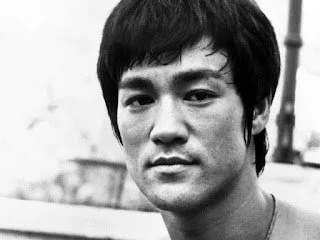Own the story of how you screwed up that time and you'll come out on top
"Mistakes are always forgivable if one has the courage to admit them."
-Bruce Lee
Lately some leaders have been telling me about their pressure to be perfect at work. They don't want to show any flaws and maybe you don't either. That's too bad because a stellar, unsung story type you can use to advocate for yourself (beyond the origin story) is the lessons learned story.
Bruce Lee told us to have the courage to admit our mistakes. He was on to something.
Perfect is boring.
Your lesson learned can be your gold star if you play it right. First, perfect is boring. Everyone has a shiny, happy face they wear. It's not special. I get it. You prefer to tell stories about the times you got it right. Like when you first tried surfing and a dolphin gave you a lift to an abandoned island where you found ancient treasure and simultaneously rescued an endangered species of pygmy birds from extinction and then hauled the treasure home to open a hospital. But who hasn't? Tell us something with a little imperfection so we can see the humanity in you.
It's time to tell the story of that time you blew it.
Here's the deal. If you can tell the story of how you failed, you become relatable (unless it's one of those hold-my-beer-I'm-about-to-meet-my-health-insurance-deductible kinds of stories). If you learned a lesson on top of it, now you're smarter and stronger. And if you can do that with a work anecdote it shows something even more important.
Lessons learned are special stories of experience.
When you tell a story about a lesson you learned, it means you have moved beyond the theoretical. You've lived the real thing and that makes you the real McCoy. Skin cancer survivors are the best about applying sunblock, no? Guess who knows the most about security breaches? Someone who has been through one...and maybe earned a scar through an eyebrow? No one is saying that cutting off a few of your own fingers makes you a more talented woodworker, but it probably means you're the go-to safety pro in the woodshop.
Share something you’re good at now BECAUSE you learned the hard way.
People who lived through something appreciate the costs and benefits more than anyone who has only hypothesized about it. Preface how good you are at something with how you weren't good at first. Here is the important part—don't waste all your story real estate talking about the details of the mistake. Instead, spend the bulk of your time on the best part; how you wised up—and even applied your new knowledge—to become You2.0. That person is who your lessons learned story is really about.
And now for an inspirational treat.
Here is a fellow human failing learning a lesson that can only make her wiser.
